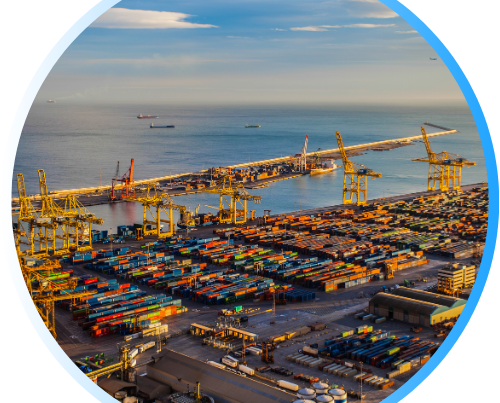Rate Related Update and Market Conditions
Market Conditions
TPEB (Trans-Pacific Eastbound)
-
Demand remains weak throughout March, with projections falling short of expectations post-Lunar New Year. While floating rates have stabilized, carriers have announced a General Rate Increase for April, though its effectiveness depends on market conditions. Most carriers have now removed Peak Season Surcharges for the rest of March.
FEWB (Far East Westbound)
-
Capacity has remained stable, with no further blank sailings announced for April. Demand has slightly improved, and vessel downsizing is helping balance supply and demand. While the March GRI was rolled back, April GRI announcements have been made, but their success is uncertain, depending on mid-to-late March volume trends.
TAWB (Trans-Atlantic Westbound)
-
Capacity is stabilizing as blank sailings decrease, though congestion in key South European ports is causing some service delays. In North Europe, most carriers have withdrawn PSS due to stagnant demand, while select Mediterranean carriers are maintaining surcharges between $700-$1,000 per container due to sustained high utilization.
Operational Updates
TPEB:
-
Equipment supply is strong across major origin hubs, with no significant shortages anticipated.
FEWB:
-
Equipment availability remains adequate, though occasional substitutions of 40-foot containers with 40 High Cube containers are causing issues for Rotterdam-bound shipments. If a 40HW container is assigned, swapping it for a standard 40-foot unit is advised.
TAWB:
-
Central Europe continues to experience equipment shortages, particularly in Austria, Slovakia, Switzerland, Hungary, and parts of Germany. Shippers are encouraged to use carrier haulage services to mitigate risks. Southern European ports are currently unaffected by equipment shortages.
Capacity Management
TPEB:
-
Vessel deployment remains above 80% for the rest of March and into April, keeping capacity healthy despite weak demand.
FEWB:
-
Space remains available, and the booking process is running smoothly. Rolling cases persist in Rotterdam due to congestion, but transshipment solutions are being arranged at origin to minimize disruptions.
TAWB:
-
Blank sailings have been reduced, improving capacity stability across the region. North Europe carriers are maintaining strong utilization levels, while South Europe routes continue to see higher demand, impacting space availability.
Sources: xeneta.com, maersk.com, yangming.com, evergreen-line.com, supplychaindive.com
New Capacity Expanding Asia-Mexico Trade Despite Rate Challenges
A group of seven Asia-based carriers is set to launch a new North Asia-Mexico weekly express service in April, adding approximately 15,000 TEUs of capacity to the trade lane. The service, featuring a 21-day transit time from Busan to Manzanillo, will see each carrier contributing a vessel between 2,200 and 2,800 TEUs. While this expansion aims to support growing demand, freight forwarders indicate that overcapacity is already putting downward pressure on spot rates.


Montreal Longshore Labor Talks Move to Arbitration
After 18 months of negotiations without resolution, Canada’s government has moved to arbitrate contract talks between maritime employers and dockworkers at the Port of Montreal. The special mediator overseeing discussions between the Maritime Employers Association (MEA) and Local 375 of the Canadian Union of Public Employees determined no agreement could be reached, leading to the end of mediation efforts. Both parties had requested 90 more days of negotiations, but arbitration will now dictate the terms of the new master contract.
Surge in Empty Containers at Los Angeles-Long Beach Post-January Imports
A surge of imports into Southern California in January, driven by pre-Lunar New Year shipping and concerns over new U.S. tariffs, has resulted in a significant accumulation of empty containers at the Los Angeles-Long Beach port complex. Terminal operators report that many truckers are not utilizing all available appointment slots, particularly during night shifts, exacerbating congestion. Drayage providers are struggling with mounting storage costs as the industry looks for solutions to clear the backlog.


Russia and U.S. to Discuss Black Sea Shipping Security
Officials from Russia and the U.S. are set to meet in Riyadh to discuss maritime security in the Black Sea as part of broader negotiations on a potential Ukrainian peace settlement. Talks will focus on evaluating proposals for safe shipping corridors, particularly in light of past agreements like the Black Sea Grain Initiative, which allowed Ukraine to export agricultural goods despite ongoing conflict. While previous agreements faced challenges, both sides will explore potential measures to stabilize commercial shipping in the region.

